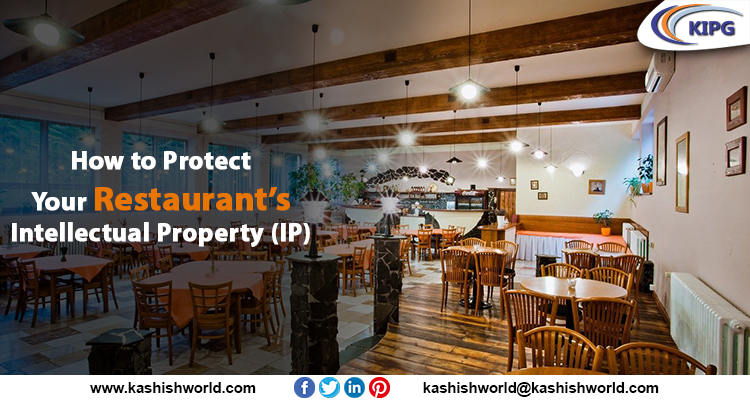
In the present highly competitive business market, creating and coming up with a distinctive idea or concept for a restaurant has become extremely challenging. For any discerning restaurateur, protecting his or her unique and innovative ideas should be the topmost priority. Therefore, it is essential to understand and have thorough knowledge about the Intellectual Property Rights (IPRs) and how they attach to the different elements of a restaurant’s brand. Having an awareness of the IP Rights shall not only help significantly in safeguarding the restaurant’s brand from the competitors but also maximize its value in general. So, let’s find out a few proactive tips for protecting a restaurant’s Intellectual Property (IP).
Always be Distinctive
Whether you are having the root idea for a business in your mind or creating a new and attractive food menu for your restaurant, you need to be as original and innovative as you can, that too, in all aspects. By designing an exclusive offer for your customers, you can market your brand and facilitate Intellectual Property Protection, which shall enable you to spot the copycat competitors in the market. While you are thinking about a new idea, it is necessary to make sure that your new offer fits well into the market and fulfills the needs of the customers. Moreover, it is essential to make a point of the fact that there are no already existing restaurants with a similar or same name as the one you are planning to come to up with to avoid confusion. Hence, the safest approach is to go ahead with a unique name in all aspects to stay away from the issues of Intellectual Property Infringement.
Make yourselves aware of the Unregistered IP Rights
It is of utmost importance to know and understand that a few IP Rights exist automatically regardless of getting them registered. For instance – On the creation of original and innovative dramatic, artistic, or literary work, copyright ownership arises automatically. In the business of restaurants, Copyright Protection extends to the restaurant’s logo, and may even stretch to protect its food and drinks menu. Food and beverage recipes may be protected as trade secrets, which shall result in providing a competitive and economic advantage to the restaurant’s owner.
Go Ahead with Trademark Registration
For some IP Rights, it is essential to follow the registration procedure to get them registered and obtain maximum protection, for example – Trademark Registration. A trademark refers to a sign or symbol used by a business owner, trader, or entrepreneur to distinguish his or her unique services or products from those offered by the others. The trademark registration gives an individual the exclusive rights to prevent unauthorized third parties from using the registered mark corresponding to the products and services covered or specified in the Trademark Application. In the restaurant business, a trademark can exist in a variety of forms, including the restaurant’s name or logo. Furthermore, a trademark can also exist for a unique dish name, for example, the Big Mac burger at McDonald’s.
Try to Understand the Legal Contracts you need
In the hospitality industry, it is imperative to seek legal advice and ensure that your restaurant’s IP Rights are well-protected. Let us try to understand the same with the help of an example. In the case of copyright – the creator or author of the work is usually its first owner. However, the scenario is different when an employee comes up with a unique creation in the course of employment, in which case, the employee shall be the first owner. Besides, creative and innovative works can be jointly owned as well if there are many people behind the establishment of a brand. Therefore, for the correct documentation and ownership of the restaurant’s brand, you must assess or evaluate from the outset what IP Rights might be engaged. For instance – in the case of trade secrets, the restaurant’s owner must take all suitable steps to maintain the secrecy and may even consider including the provision of confidentiality in the chef’s legal contract or agreement. In the case of any third person’s recipe protected as trade secret, the use of non-disclosure agreements can prove to be exceedingly beneficial.
Be prepared to take Legal Action
Intellectual property infringement of a restaurant’s name can take place in several different forms, including Trademark Infringement, breach of copyright, to name a few. If you spot a competitor stealing your ideas or infringing on your IP Rights, whether intentionally or accidentally, you must start by seeking legal advice to find out the extent and nature of infringement. In most of the cases, sending a pre-action letter proves to be sufficient in resolving the issue; however, initiating legal proceedings may at times prove to be necessary for protecting the restaurant’s brand and entity.

